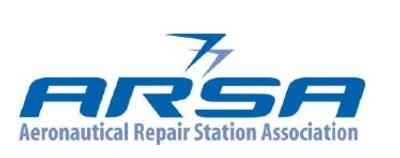ARSA Reports That NTSB Denial 'Is Beside the Point'
On Oct. 13, the NTSB denied ARSA’s attempt to intervene in two cases concerning repairman certificate denials. Administrative Law Judge Stephen R. Woody delivered the denial order to Obadal, Filler, MacLeod & Klein, P.L.C., the association’s management firm providing pro-bono assistance in the legal effort.

The matters before the board involve a repair station making recommendations supporting repairmen certificates for supervisors with approval for return to service duties. The FAA denied the recommendations. On Aug. 27, OFM&K filed a motion for leave to intervene on ARSA’s behalf.
“The denials were not based upon whether the individuals were qualified to perform the work appropriate to the job of supervisor set forth in the rules governing repair stations,” said ARSA Executive Director Sarah MacLeod, who is also managing member of OFM&K. “Nor were the denials based upon the individuals lacking the practical experience required. The FAA’s answer to the repairmen appellants was that an outdated advisory circular and equally stale internal guidance did not ‘allow’ such a rating. Ironically, the internal guidance upon which the FAA relies plainly states: Repairmen do not have a rating other than ‘Repairman.’”
The board’s denial was unconcerned with the actual matter at hand in the cases. Woody instead followed the FAA’s response to ARSA’s petition by rejecting the association’s legitimate interest in the case:

“ARSA has not claimed that it has a property or financial interest in the outcome of these proceedings, and it does not appear to have any ‘other legitimate interest’ in them,” Woody said, citing the association’s stated purposes in its articles of incorporation. “The sole issue presented in these cases is whether petitioners Turner and Messner-Henning are qualified as individuals to hold repairman certificates. It is difficult to conceive how the resolution of that issue substantially affects [the association’s] welfare.”
Contrary to Woody’s assertion, intervening in a case regarding regulatory interpretation is fully consistent with ARSA’s purpose as stated in the articles “to develop positions and objections with regard to legislative and regulatory matters, and to initiate action which will achieve those objectives, consistent with the policies of the Corporation and with the laws governing the conduct of such activities.”
Considering the NTSB’s ultimate decision has the potential to affect every ARSA member company by imposing unnecessary compliance costs, administrative burdens and limits on workforce flexibility. That would seem to be an “other legitimate interest,” which the denial failed to address.
The association’s leadership team and its board recognized the potential outcome. Its executive director warned of the outcome in the September edition of the hotline. If the association gets the chance to file an amicus brief – which is only allowed after Woody’s decision on the merits is issued – it will do so.
 NTSB Final Report: Cessna 177B
NTSB Final Report: Cessna 177B ANN's Daily Aero-Term (05.08.25): Final Approach Fix
ANN's Daily Aero-Term (05.08.25): Final Approach Fix Aero-News: Quote of the Day (05.08.25)
Aero-News: Quote of the Day (05.08.25) ANN's Daily Aero-Term (05.09.25): Estimated (EST)
ANN's Daily Aero-Term (05.09.25): Estimated (EST) ANN's Daily Aero-Linx (05.09.25)
ANN's Daily Aero-Linx (05.09.25)



